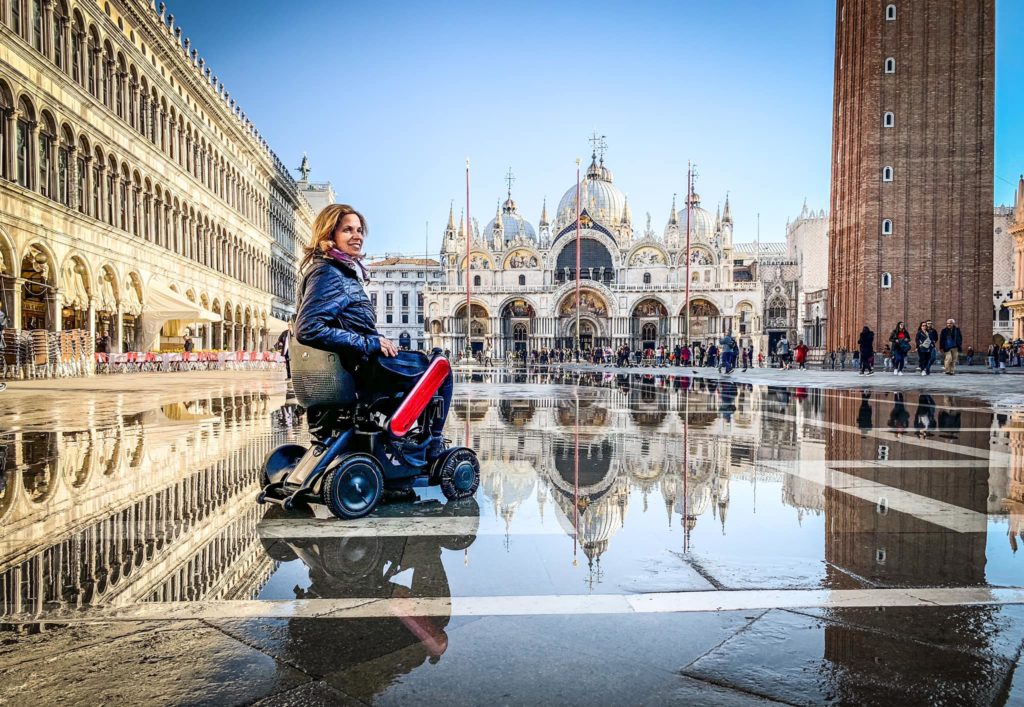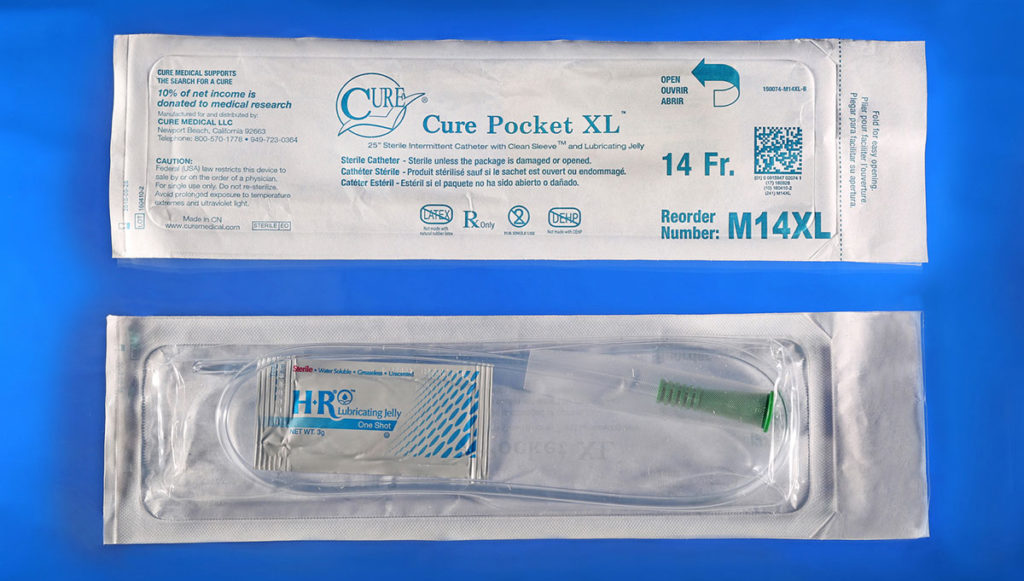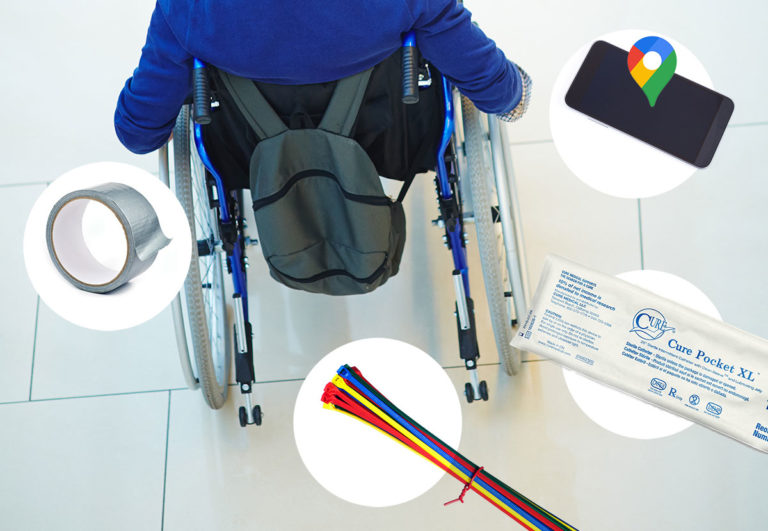 CURE NATION: Traveling as a wheelchair user or as someone with a different type of disability can be stressful enough. World travel, Sylvia Longmire, shares tips to make it easier. The packing list will contain items that are typical for everybody, like clothing and toiletries, however, there are some special items to consider bringing in order to make an accessible getaway as easy as possible. Here are some suggestions.
CURE NATION: Traveling as a wheelchair user or as someone with a different type of disability can be stressful enough. World travel, Sylvia Longmire, shares tips to make it easier. The packing list will contain items that are typical for everybody, like clothing and toiletries, however, there are some special items to consider bringing in order to make an accessible getaway as easy as possible. Here are some suggestions.
[divider]Prescription and OTC Medication[/divider]
It goes without saying that you should bring with you on your accessible getaway all prescription medications that you take on a regular basis. However, make sure to bring an extra supply for several days in case of any travel delays. You also want to bring with you some basic over-the-counter medications, like cold medicine, ibuprofen, motion sickness pills, or anything else that might make you more comfortable in case of unexpected illness. If your medication requires refrigeration, make sure that you contact your cruise line or hotel to make sure they have storage available for you. Otherwise, you’ll want to bring appropriate long-term cold packs.

[divider]Electrical Accessories[/divider]
If you use a power chair, the last thing you want to leave at home is your charger! You may also want to bring an extension cord in case there isn’t a power outlet close to where you have to charge your chair at night. If your accessible getaway takes you to a foreign country, you will most likely need an adapter so that your plug will fit into the outlet. You also need to check the voltage of your charger to see if you need a power converter as well. Try to find a charger that has variable voltage so that you can skip having to buy and transport a converter. If you need an extension cord, I highly recommend purchasing an extension cord suited for the outlets at your destination, or you may blow out the outlet– or worse.
[divider]Grabbers[/divider]
Folding grabbers are easily my favorite travel tool! These are lightweight aluminum rods with a large rubber pincer at the end. They squeeze together with a big trigger at the other end, and can help you pick things up off the floor, flip light switches that are out of reach, close curtains, pulldown shower heads, and anything else that might be out of reach. I prefer the folding models because they fit better in a carry-on suitcase.
[divider]Duct Tape and Zip Ties[/divider]
People like to joke around when I make this suggestion for things you should place in your accessible getaway carry-on bag because it looks like I’m about to kidnap and torture someone. However, no two items are better for managing unexpected damage to your wheelchair or any other essential mobility equipment. Duct tape it is very strong, water proof, but also easy to tear without scissors. In a pinch, it can do a great job in holding things together until you can get them repaired or replaced. Zip ties are also great for fastening things that are loose or just temporarily holding two items together. For example, I use zip ties to attach a sign to the back of my power chair showing airport ramp crew how to put my chair in neutral.
[divider]A Great Backpack[/divider]
Once you have all of this great stuff to help you on your accessible getaway, where are you going to put it? There are many different backpack solutions for different types of wheelchair users. I prefer a backpack that has several compartments and pockets because it helps me separate all the different types of stuff I need with me on the plane. For example, in my backpack I have my laptop, chargers for it and for my chair, an extension cord, my medications, my photography accessories, and my electronics, like my Kindle and my backup battery. I can use a regular two-strap backpack to place on the back of my power wheelchair seat. However, there are many types of specialized bags that will hang over the back of a manual wheelchair as well.
[divider]Cell Phone Travel Apps[/divider]
There are hundreds of travel apps out there, but I have found some that are particularly useful for wheelchair travelers. Before you leave home, make sure you have Google Maps on your phone. For many destinations, this app can provide you with wheelchair accessible routes, accessible public transportation stops, and tourist attractions and restaurants that have accessible entrances and the bathrooms. If you are traveling to a non-English speaking country, make sure you have Google Translate to make communication easier. Have a conversion app handy to help you with things like currency, distance/length, and weight. This will be particularly helpful if you have to provide specifications about your wheelchair to an airline in a foreign country.
While all of these items will be helpful for you in different ways, the best thing to pack with you is a positive attitude. Be flexible, prepare for the unexpected to happen, and most importantly, I have a great time!
[divider]Portable Catheter Options[/divider]
The Cure Medical® Pocket Catheter features polished eyelets on a U-shape catheter that easily fits in a trouser pocket or small bag. One of the four Pocket Catheter styles is the 25” M14XL Extra Long Pocket Catheter.
It enables use without the need to transfer. This is especially beneficial when using public restrooms.

Other Cure Medical catheter options that are considered portable and ready-to-use are the:
HELPFUL LINKS
These online resources are offered for your convenience to help ensure safe, enjoyable travel:
https://www.cdc.gov/coronavirus/2019-ncov/travelers/index.html
https://www.cdc.gov/coronavirus/2019-ncov/travelers/travel-planner/index.html






